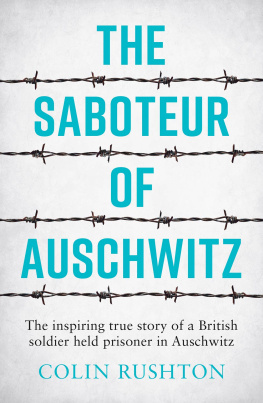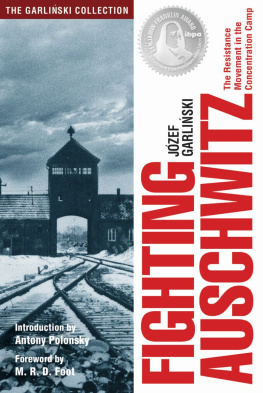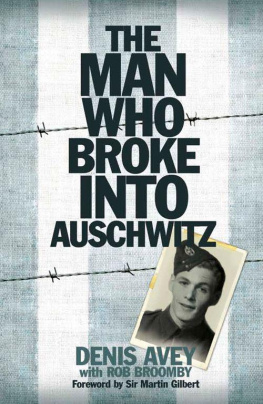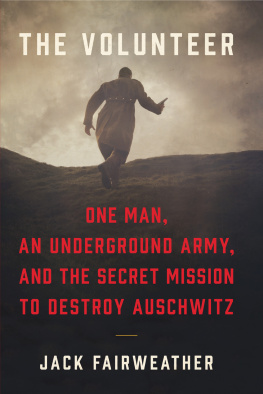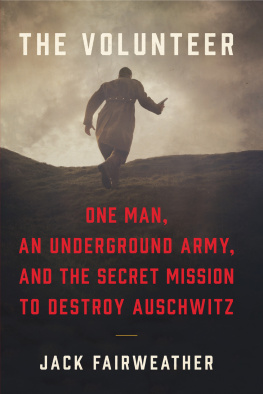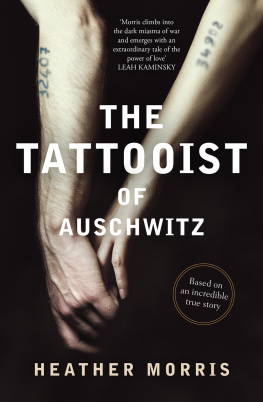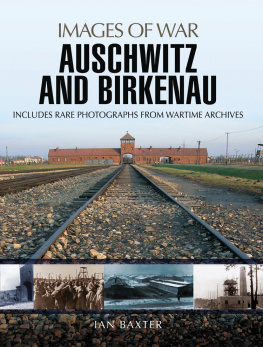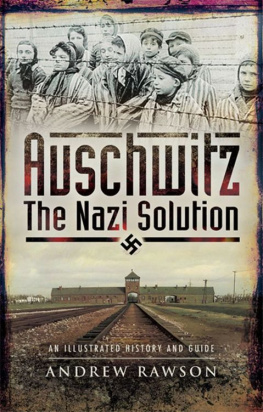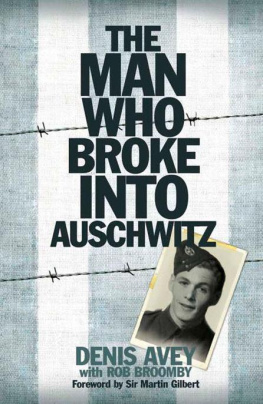'compelling'
THE GUARDIAN
'An extraordinary book.'
MILITARY ILLUSTRATED
'A human witness to inhumanity: Arthur Dodd'saccount is another important piece of evidence.'
LEGION, the Royal British Legion magazine
'Colin Rushton's masterly account is a harrowing addition to public knowledge of the Holocaust.'
SOLDIER magazine
'It is a riveting story and it is true.'
BARNES & NOBLE
'If we do not remember the past, we will repeat it. Truly an extraordinary book.'
DEFENCE FOCUS, the House Journal of the Ministry of Defence
'a pertinent historical account'
JEWISH CHRONICLE
'Simple sentences add a terrible innocence in keeping with Arthur's ordinariness, struggling against the unimaginably extraordinary. History will be grateful that Arthur Dodd's story was told.'
SCOTTISH LEGION NEWS
THE SABOTEUR OF AUSCHWITZ
This edition copyright Colin Rushton, 2019 First published as Spectator in Hell by Pharaoh Press in 1998
Second edition published in 2001 by Summersdale Publishers Ltd
Third edition published in 2007 by Summersdale Publishers Ltd
Fourth revised edition published as Auschwitz in 2013 by Summersdale Publishers Ltd
All rights reserved.
No part of this book may be reproduced by any means, nor transmitted, nor translated into a machine language, without the written permission of the publishers.
Colin Rushton has asserted his right to be identified as the author of this work in accordance with sections 77 and 78 of the Copyright, Designs and Patents Act 1988.
Condition of Sale
This book is sold subject to the condition that it shall not, by way of trade or otherwise, be lent, resold, hired out or otherwise circulated in any form of binding or cover other than that in which it is published and without a similar condition including this condition being imposed on the subsequent purchaser.
An Hachette UK Company
www.hachette.co.uk
Summersdale Publishers Ltd
Part of Octopus Publishing Group Limited
Carmelite House
50 Victoria Embankment
LONDON
EC4Y 0DZ
UK
www.summersdale.com
eISBN: 978-1-78783-385-2
Substantial discounts on bulk quantities of Summersdale books are available to corporations, professional associations and other organisations. For details contact general enquiries: telephone: +44 (0) 1243 771107 or email: .
Other books by the same author:
Beyond the Gates of Hell
Spirit of the Trenches
CONTENTS
Arthur's Story
Other Accounts
Snapshots from Affidavits Given Under Oath at Nuremberg
Responses to Arthur's Story
The British Government's Treatment of Survivors
List of Commonwealth POW Casualties from the Air Raid on Auschwitz, 20 August 1944
ACKNOWLEDGEMENTS
W ith thanks to the Wiener Library for supplying photographs 1 and 2 and to the National Archives and Records Administration for photograph 5 (reference number 208-YE-193).
Thanks are due to Duncan Little, a journalist and researcher, for the many hours spent searching the National Archives for vital supporting facts to ratify Arthur Dodd's story.
Thank you to The National Archives for allowing us reference to their records for verification purposes, the more than one hundred miles of shelving holding no less than nine million documents.
Although every effort has been made to trace the present copyright holders, we apologise in advance for any unintentional omission or neglect and will be pleased to insert appropriate acknowledgement to companies or individuals in any subsequent edition of this publication.
PROLOGUE
T he train ground to a halt and the sliding doors of th carriage crashed open. The two dozen men inside raised their hands to the sun and in turn jumped down from the train. They were met by a chorus of commands from the handful of Wehrmacht guards awaiting their arrival.
'Bewegen sie! Bewegen! Schnell!'
Falling into some semblance of a formation, the men slowly grew accustomed to the bright daylight after several hours in the dark and took in the scene before them. Their eyes were met by a vision of rural tranquillity. To the right, fields of yellow clay rolled into the distance and to the left was a romantic little copse, a perfect retreat for a courting couple.
There were no factories in sight and no building work was in evidence. From where they stood there was no sign of any industry taking place at all. They had crossed the German border the night before and guessed they were probably now in Poland. Discussing their new location quietly among themselves, the consensus of opinion was that they were destined for farmwork. As prison camp work went, this was good news; they would have plenty of fresh air and there should at least be an abundance of fresh fruit and vegetables to eat.
Looking down the length of the train, Arthur noticed hundreds of bundles a yard or so from the track. There were trousers, shirts, skirts and shoes, some clearly belonging to young children. Only mildly curious, he thought little of it; he was far too relieved that his worst fears regarding their destination had not been realised.
A short march brought them to a camp and if Arthur felt any apprehension as he entered the gates, it soon disappeared. Inside the perimeter fence were ten wooden huts. The POWs were ushered into the nearest and they were pleasantly surprised by how dry and clean it was. Further investigation revealed central heating pipes running the length of the hut, hot and cold running water at each basin and solid bunk-beds, upon which were clean and adequate mattresses.
For the next two weeks the men settled themselves into what they hoped would be their accommodation for the rest of the war and, in the spring of 1943, it was anybody's guess how long that would be.
A week later, Arthur woke slowly to the noise of guards stomping through the hut's central corridor, banging riflebutts on doors. Over the past few days the number of British prisoners in the camp had swollen from two dozen to nearer two hundred, but they had been required to do little or no work and had been reasonably well-fed.
The guards were smiling and enjoying themselves, but there was no friendship in it. There was something sinister happening and they were about to find out what it was.
'Der Feiertag endig! Arbeiten sie jetzt!'
Those who had more than a smattering of the language were asked what was being said and Arthur learned that they were being sent to work. Knowing this moment would come sooner or later, the men shrugged and made their way out to the parade area.
Once gathered into formation, they were marched out of the camp and along a dusty road running through a forest. Arthur, with his mates, was up at the front. En route they came across a group of prisoners working to one side of the road. They were Ukrainian women digging ditches under the watchful eye of several armed guards carrying coiled whips. The fear and tension in the women's eyes was tangible. Prior to their arrival the men had been at Farasabrina in Italy and Arthur had drawn the lowest card and missed out on what turned out to be a fairly straightforward escape bid. He wondered now how much he would regret that.

